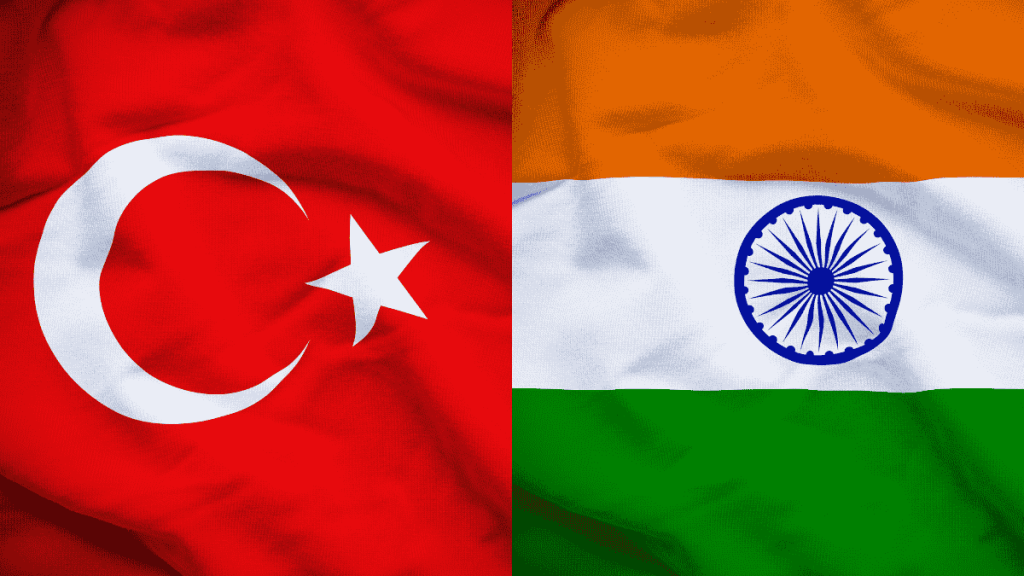The Indian government appears less inclined to block trade with Turkey despite widespread calls to “Boycott Turkey”, according to a report by The Indian Express. While steps are being taken to limit involvement of Turkish firms in critical infrastructure over national security concerns, officials told The Indian Express that a complete trade ban could hurt India’s own export interests.
Local groups push for ban; Officials cite trade surplus
India currently enjoys a trade surplus of $2.73 billion with Turkey. Officials say this surplus is a key reason why they are not rushing to block Turkish imports, even though several domestic groups are demanding curbs.
“We have received a number of representations to ban imports from Turkey. Apple-growers from Himachal Pradesh have sought a ban on apple imports from Turkey. But India runs a trade surplus with Turkey, and we have to keep in mind our exporters’ interests too. It (a trade ban) could be a strong geopolitical message, but it’s about how far you want to take it,” a government official told The Indian Express.
Industrial exports drive India’s gains
India’s exports to Turkey have steadily grown, especially in industrial sectors. In FY25, total exports stood at $5.72 billion. Of this, engineering goods accounted for over $3 billion. The Micro, Small and Medium Enterprises (MSME) sector made up 35-40 per cent of this figure.
On the other hand, Turkey’s exports to India remained limited to a few key sectors — including fruits, nuts, marble, and gold. India imported $2.99 billion worth of goods from Turkey in FY25.
Himachal farmers, marble processors seek import bans
Last month, apple-growers from Himachal Pradesh met Commerce Ministry officials to demand a ban on apple imports from Turkey. They said Turkish apples, which are heavily subsidised, are damaging the local horticulture industry and putting apple farmers under financial stress.
“Apples are not just a commercial crop but the economic backbone of hill states,” said one of the growers according to The Indian Express.
Similarly, marble processors in Udaipur wrote to the Prime Minister’s Office (PMO), urging a ban on Turkish marble. They cited Turkey’s support to Pakistan during Operation Sindoor as a reason for their demand. India currently imports the majority of its marble from Turkey.
Turkey’s petroleum imports fall, aviation ties hit
Turkey had increased petroleum imports from India after the Ukraine war. But this trade has seen a steep decline in FY25.
Meanwhile, the Indian government has taken security-related steps in other areas. Last month, the Bureau of Civil Aviation Security (BCAS) revoked the security clearance of Celebi Aviation, the Indian arm of a Turkish ground-handling firm. The Bombay High Court later stepped in, stopping Mumbai Airport from finalising a new contract until the matter is heard in June.
Tourism from India to Turkey dips after Operation Sindoor
India’s concerns over Turkey’s pro-Pakistan stance in conflicts with India are also affecting tourism. Travel agents report a decline in tourist interest in Turkey and Azerbaijan. While Turkey welcomed 3 lakh Indian tourists in 2024 and Azerbaijan saw 2.44 lakh, many travellers are now opting for Central Asian nations like Kazakhstan and Uzbekistan instead.
Despite growing tensions and industry pressure, the government is proceeding cautiously on Turkish imports, balancing political messages with economic logic.
